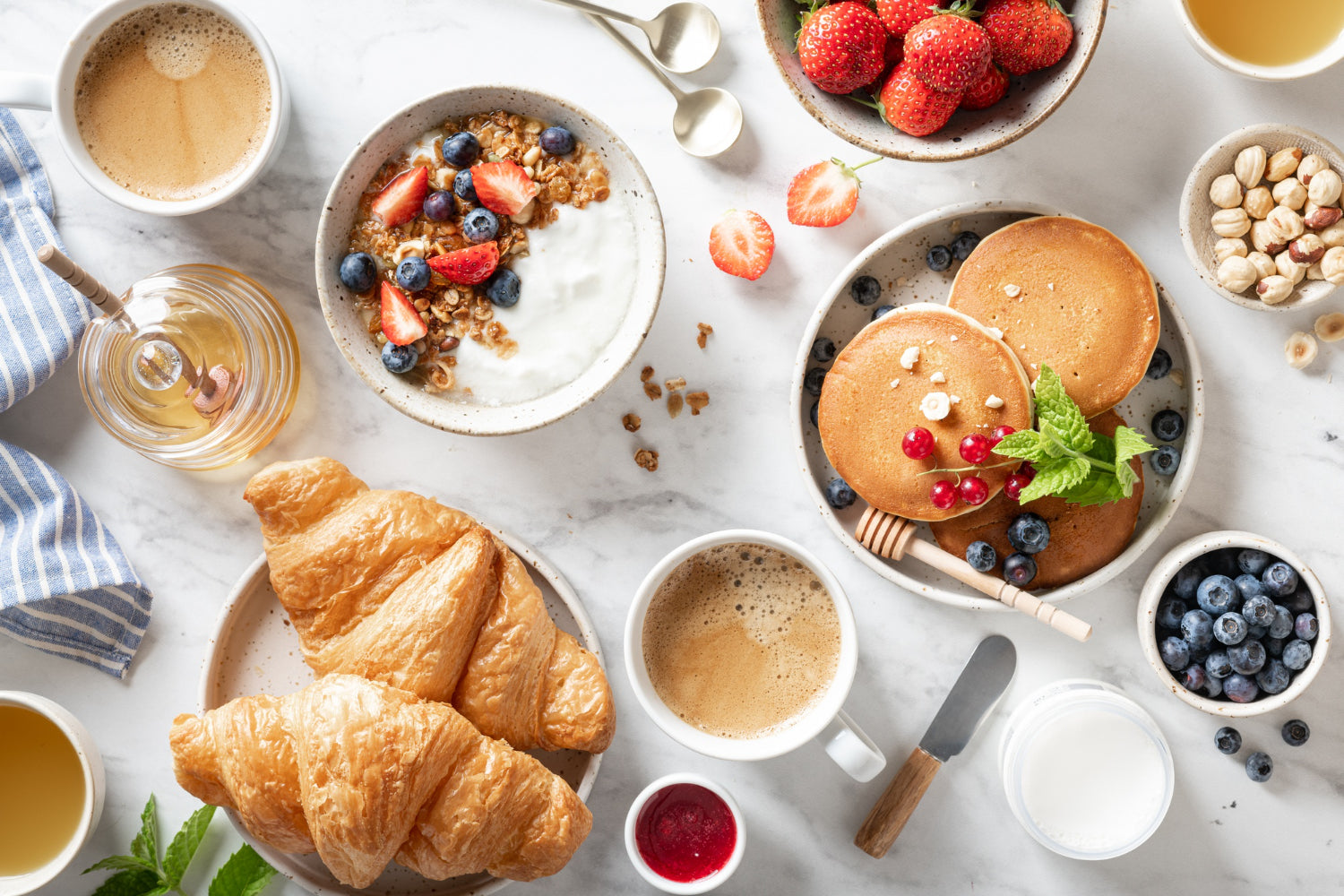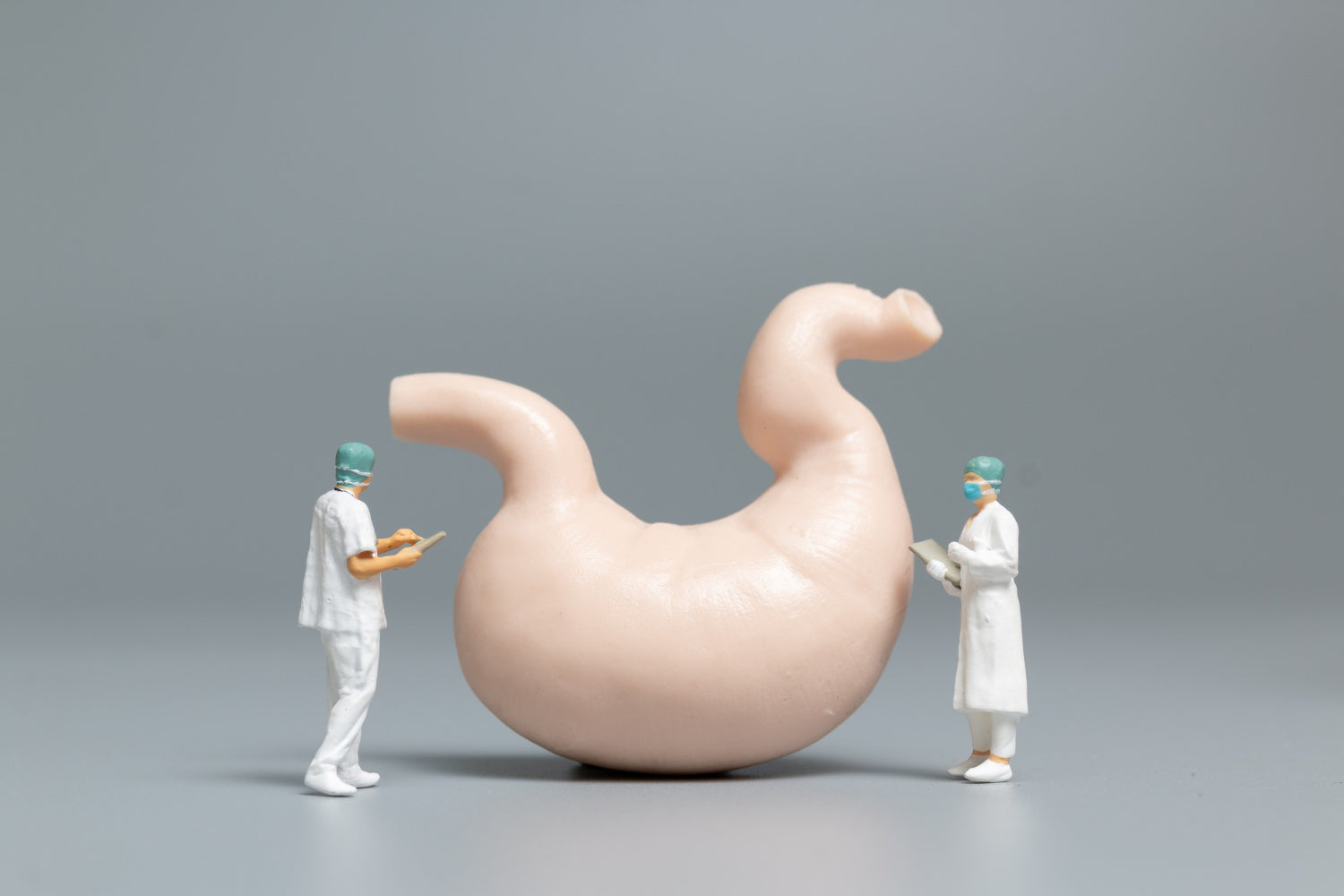Is it okay to skip breakfast? Everyone from your grandma to the top nutritionists and registered dietitians has an opinion. But what’s the right answer?
With busier lives than ever, hitting the snooze button on “the most important meal of the day” has become all too common. Researchers say nearly 25% of Americans bypass breakfast — and at least 60% of young adults follow their lead.[*][*]
If you’re an avid breakfast skipper, you may call this a calorie-cutting win. It may also perfectly align with your intermittent fasting goals. However, studies show this shortcut comes at a hidden cost to your health and wellness.
So, let’s dive into the effects of breakfast to learn how to conquer mornings with the best science-backed choice for your well-being.
Dear Science: Is It Okay To Skip Breakfast?
According to research, when you ditch your morning meal:
You May Stall Weight Loss (or Even Gain Weight)
Weight loss and weight management are some of the main reasons people pass on pancakes. The logic seems sound: eating fewer calories creates a greater deficit at the end of the day, which adds up to more LBs lost over time.
Now for the plot twist: a meta-analysis of 45 studies showed that breakfast skipping raises your risk of obesity.[*] Another revealed an 11% increased risk of weight gain when skipping breakfast three or more days a week.[*] Here’s why:
Skip your AM meal, and you’ll play catch-up all day. Missing breakfast skyrockets cravings for quick energy sources.[*] Studies prove that people who skip compensate by overeating carbohydrates, calories, and added sugar during lunch, dinner, and snacks than those who eat breakfast.[*][*][*]
Breakfast skippers are also less active. Researchers say people expend less energy when they ignore breakfast than when they eat one.[*] So you may be more likely to skip the gym or slack on your daily steps — a deal-breaker for weight loss results.
Prioritizing a healthy breakfast is an easy, powerful tool for losing weight because it:[*][*][*]
- Lowers ghrelin levels (the “hunger hormone”)
- Suppresses your appetite throughout the day
- Decreases intake of high-carb foods in the evening
- Leads to higher physical activity levels (and more burned calories!)
Skipping Breakfast Also Messes with Your Blood Sugar Levels
When scientists studied over 96,000 people, they discovered that breakfast deniers have an increased risk of type 2 diabetes — and their risk rises with every day of breakfast skipping.[*]
In one study, researchers noticed breakfast bypassers had higher blood glucose spikes after lunch than those who had a morning meal. The breakfast-skipping group also had higher insulin resistance, meaning their bodies didn’t produce or use insulin effectively enough to manage the blood sugar rise from lunch.[*]
Good news? Eating breakfast boosts insulin sensitivity (how well your body uses insulin) and improves insulin resistance.[*][*] Even better? A high-protein breakfast has been shown to tame post-breakfast blood sugar spikes and blunt post-meal spikes following lunch and dinner.[*]
Bottom line: Breakfast helps stabilize blood sugar levels throughout the day. And better blood sugar control is also a win for your weight loss goals.
It Deprives Your Brain of The Refuel It Craves
You might have been relaxing in your favorite dream while you were asleep. But your brain?
It performs vital cleanup to rid your noggin of built-up toxins and cellular debris. It’s also busy processing information, consolidating memories, solidifying learning experiences, and working through emotional/stressful situations from the day to support your mental health.
So when you wake up, your brain is jonesing for a refuel. Leave it hanging, and you’ll experience low energy levels, moodiness, frustration, brain fog, and other unpleasant side effects you never want to start your day with.
Eating breakfast prevents that cerebral power outage. Studies show it’s the kickstart your noggin needs for better cognitive performance, stronger memory recall, and greater attention, concentration, and focus.[*][*]
🤔 Curious about what else your brain gets up to while you’re sleeping? Take a peek!
It Becomes SO Much Harder To Reach Your Protein Goals
Hitting your protein goal provides the essential building blocks your body needs to thrive. Protein keeps you fuller for longer, helps build and repair muscle, and supports numerous bodily functions — all crucial for staying healthy and reaching your goals.
Ignoring breakfast makes protein insufficiency a legit possibility. Then your body will start breaking down muscle tissue for the protein it needs, leading to muscle loss, decreased strength and performance, fatigue, and a slower metabolism.
To prevent this, researchers say it’s best to split your protein intake throughout the day rather than cram it all in later. Breakfast provides the perfect opportunity to check off 20–30 grams of protein ASAP.
Plus, adequate protein is a game-changer for weight loss. Compared to skipping breakfast or even lower-protein breakfasts, high-protein breakfasts boost satiety, slash sugar cravings, reduce evening snacking, decrease daily calorie intake, and prevent body fat gains.[*]
Skipping Breakfast Disrupts Your Circadian Rhythm
Your circadian rhythm is the internal clock regulating sleep-wake cycles, hormones, and your metabolism. Growing evidence links messed-up circadian rhythms with a rise in metabolic diseases like obesity, type 2 diabetes, and heart disease.[*]
Scientists believe eating breakfast keeps your internal clock ticking on time. It’s connected to better sleep quality and less insomnia.[*]
Conversely, ditching breakfast throws this rhythm off course, leading to sleep disturbances, daytime fatigue, decreased brain power, weight gain, and those metabolic diseases.[*]
It Also Sabotages Your Overall Health
Habitual breakfast eaters are more active, have higher micronutrient intakes (essential vitamins, minerals, and nutrients), and a lower risk of chronic diseases.[*] That’s why researchers say eating breakfast is a sign of a healthy lifestyle.[*]
On the other hand, people who skip breakfast have a “significantly poorer overall diet” and engage in fewer “health-promoting” behaviors.[*]
In addition to the disadvantages we’ve already highlighted, they’re also more likely to have mental health problems, an increased risk of high blood pressure and poor cholesterol levels, and lower vitality and total health scores.[*][*][*][*]
So, What About Intermittent Fasting?
Intermittent fasting (IF) has gained popularity as a healthy method of losing weight. Breakfast, appropriately named because it’s supposed to break your overnight fast, is the meal most frequently skipped with IF.[*] And since low-carb and keto diets work well to suppress your appetite, skipping breakfast almost comes naturally.
However, now that we know more about skipping breakfast and circadian rhythms, it may be smarter to:
Eat With Your Circadian Rhythm
Mounting research proves that aligning your meals with your circadian rhythm improves your metabolic health and well-being.[*] So many RDNs and health experts now recommend a time-restricted eating (TRE) protocol with a 6–10-hour feeding window that matches your internal clock.[*]
This adjusted eating window makes room for breakfast in your morning ritual while encouraging an earlier dinner. Dawn-to-sunset fasting, one of the most commonly practiced types, seems to carry several well-documented health benefits, including:[*][*][*]
- Appetite suppression and weight loss despite no change in calorie intake
- Decreased waist circumference, BMI, and body fat
- Improved cholesterol and blood pressure
- Better insulin sensitivity and lower blood sugar levels
- Lower inflammation and biomarkers of oxidative stress
- Higher ketone production
IQBARs: How To Breakfast Like a Boss 🙌
Eating a balanced breakfast means filling your first meal of the day with foods from the three macros (protein, healthy fats, and dietary fiber) and important nutrients like vitamins and minerals.
But no matter how much you plan ahead, some mornings are just out of your control. Maybe they’re always crazy in your house (no shade!). That’s why building an easy grab-and-go option into your game plan makes sense.
IQBARs are the clean, vegan, keto-friendly protein bars you can rely on for busy mornings. Loaded with healthy fats, beneficial prebiotic fiber, and brain-boosting nutrients, they’re a complete protein source equivalent to noshing two eggs (but it’s 12 grams of plant-based protein!).
Stash one in your bag or your desk. Or add IQBARs to your favorite breakfast foods — crumble a bar or two into your chia pudding, Greek yogurt, cottage cheese, or protein smoothies — to dominate the breakfast game.
💪 Psst! Use these 10 Keto Breakfast Recipes to start your day right!
Breakfast Sets the Tone for the Rest of the Day ☀️
Breakfast is more than a meal; it’s an investment in your overall health and wellness. It can help you lose weight, protect your muscles, fire up your brain, and lay a strong foundation for the rest of your day to go exactly right. And with IQBARs in your pantry, it’s the easiest decision you’ll make before coffee.
🥳 Conquer your mornings and get a jumpstart on your goals with IQBARs! Send our 7-Bar Sampler to your door to try every flavor and find your new breakfast BFF!
Written by Lauren Ciccarelli, a writer and research geek passionate about low-carb nutrition, mental health, and meditation. Her 2,500+ articles empower doers with science-backed tips for leveled-up living.




